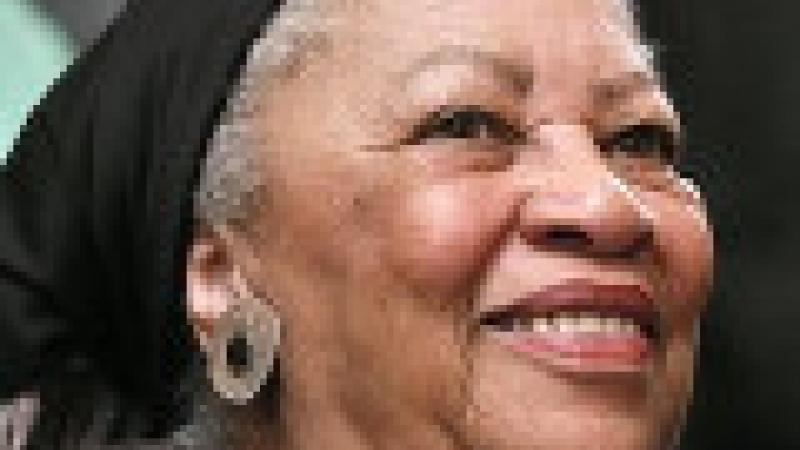
Toni Morrison has been a giant of American letters for decades - and for many the closest the country has to a national writer.
We were not able to speak to her in the US, such is her busy schedule, even at 81. But we met at the American Academy in Rome, in Villa Aurelia, set on the highest hill overlooking the city.
It was an appropriate setting, steeped in history - a sumptuous 17th Century salon room that was once the headquarters of General Garibaldi - the man who unified Italy.
We sat beneath an enormous chandelier and talked among other things, about the things that define her work, the history of African Americans, slavery, and she shared her insights into contemporary American society, including thoughts on President Obama, a man she admires.
Required reading
She is a writer who has changed how America talks and thinks about slavery, with her seminal novel, Beloved, in which a mother kills her daughter rather than see her suffer under slavery.
It is a novel which is required reading in high schools and colleges, an extraordinary achievement for a living writer.
Although all her work is about historical moments, she told me she was working on a contemporary novel about an African American President.
"I'm sort of playing around with it on paper as they say. It's very, very hard. The story is difficult for lots of reasons.
"One of which is that one of the main characters is an intellectual - I've never written about an intellectual before and the other is I don't fully understand the contemporary world.
She had a glint in her eye as she revealed this, and while she may not feel she fully understands the contemporary world - so focussed has her career been on charting the history of African American experiences from the inside - she has been a powerful commentator on issues which relate to that major fault line in American society, race.
When I asked her whether she thought the election of Barack Obama as the country's first African American President was more than just symbolic, she was keen to comment on the ways in which he is vilified by the right.
Not surprisingly for a writer, it is the language used to talk about the president which concerns her.
It was a sobering moment in the interview when she reflected on President Obama's deceased mother and grandmother, both of whom were white.
"I wonder what it would have been like if he had won the presidency and his mother, from Kansas and his grandmother, from Kansas, those two white people, were alive and living in the White House, or visiting. You know, I wonder what the language would be. Now what would you say?"
Black is beautiful
When Toni Morrison wrote her first novel, The Bluest Eye, she was working as an editor at the publishing company, Random House.
The novel is about a young black girl who wishes she had blue eyes and the impulse to write it was prompted by the sentiment behind the slogan "black is beautiful" which was so prominent during the civil rights movement in the 1960s.
Toni Morrison was interested in exploring why a young black girl would want something that would make her look so ugly and distorted.
But she recognises that confidence among young black people and young white people when it comes to black culture has changed.
"The culture they are exposed to, it seeps with African American music, song and dance and everything. So they are not uncomfortable they are not afraid, they don't think of it as the other.
"It's part of what they do hear, etc. I am aware of the parts that have not worked with the older generation who are really terrified of a black man being in charge, a dumb one they could handle, but a really smart one..."
There is something regal about Toni Morrison, now in her 80s, she displays a very quiet and still wisdom, acquired from years of reflecting on the world she grew up in, as a child in the 1930s, whose grandparents had been slaves, and who has lived to see an African American in the White House.
The new series of Talking Books reflects contemporary America through the perspectives of some of the country's biggest writers. The interview with Toni Morrison will be the first in the series on BBC World News TV on Friday 5, Saturday 6 and Sunday 7 October.